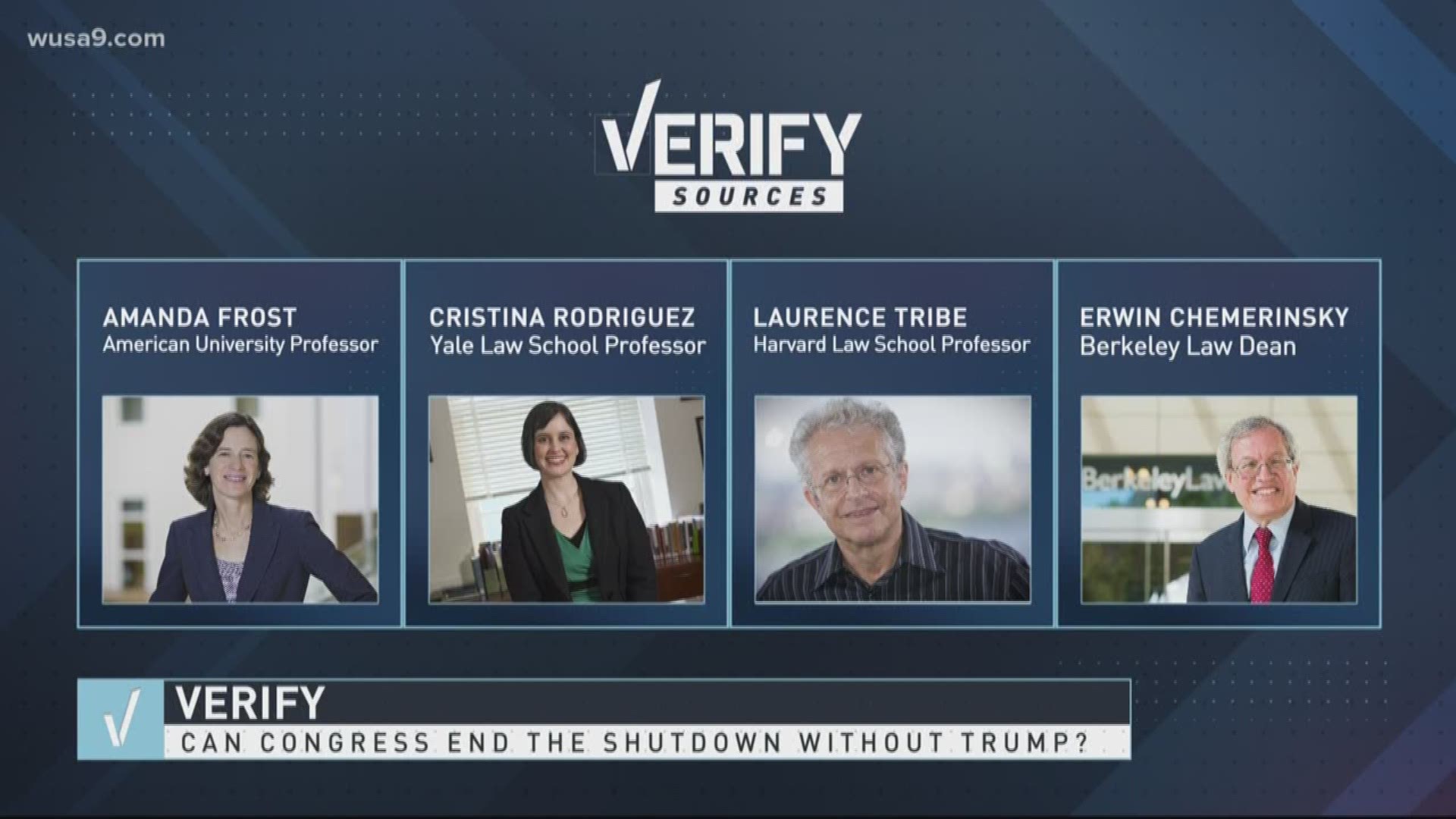WASHINGTON — QUESTION:
Can Congress pass a spending bill to end the shutdown without the President?
ANSWER:
Yes.
SOURCES:
Amanda Frost- Professor of Law at American University Washington College of Law
Erwin Chemerinsky- Dean of Berkeley Law School
Laurence Tribe- Professor of Constitutional Law at Harvard Law School
Cristina Rodriguez- Professor of Law at Yale Law School
U.S. Constitution: Article 1 Section 7
PROCESS:
Trump's partial government shutdown --at 21 days-- is officially tied, as the longest in history.
Our Verify inbox is filling up with your questions about whether Congress could be our saving grace and re-open the government.
Viewers Alton Robinson and Shanetta Ore both asked the Verify team whether Congress can pass a spending bill and end the shutdown without the Trump.
Turns out -- yes, Congress can.
Under Article 1 Section 7 of the Constitution, the president can veto a bill, but Congress can override the president's veto with a two-thirds majority vote in both chambers.
The clause is meant "to strike a balance between Congress and the Presidency," Laurence Tribe, Professor of Constitutional Law at Harvard Law School explained.
"The Framers’ view was that they wanted a check on Congress," Amanda Frost, Professor of Law at American University Washington College of Law, said. "The Framers were worried about Congress having too much power, though for the last 50 years I believe the problem is that the President has accrued too much power."
"The Presidential veto was intended as a check on the legislative power, to prevent Congress (the most powerful and feared branch at the time) from enacting oppressive legislation," Cristina Rodriguez, Professor of Law at Yale Law School, said. "The override provision presumably reflects the view that Congress should have the final say, if enough of its members (a super majority) want a bill to become law, reflecting the principle of legislative supremacy."
The Democrat-controlled House of Representatives has already passed a spending bill, but here's the issue, it didn't include funding for the wall.
Senate Majority Leader Mitch McConnell said he won't bring up the House's bill for a vote in the Senate without the funding.
"The Senate will not waste its time considering a Democratic bill, which cannot pass this chamber and which the president will not sign," McConnell said before the Senate January 2, twelve days into the shutdown.
But what if the rest of the Senate wants to pass a bill to end the shutdown? Can they circumvent Mitch McConnell?
We asked four experts from Harvard, American University, Yale and Berkeley with over a century of combined expertise in constitutional law.
Under Senate rules, Mitch McConnell exclusively controls what legislation reaches the Senate Floor for a vote, they explained.
"Under the rules of the Senate, McConnell can control which legislation reaches the floor, and he has chosen not to allow a vote on any bill that Trump would veto," Frost said. "McConnell also refused to allow hearings or a vote on Obama’s supreme court nominee. The Senate can change its rules anytime, but there is nothing unconstitutional about creating them and abiding by them."
So we can Verify, yes, under the constitution, Congress can override Trump's veto and end the shutdown. However, it is unlikely, since McConnell won't let the Senate vote on anything that doesn't include funding for the wall.

